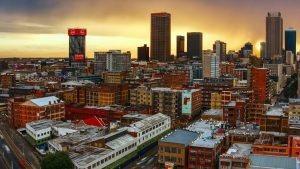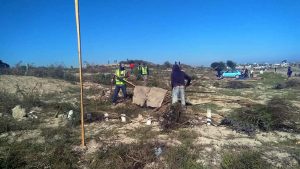A newly released World Bank report has highlighted that not one South African city made progress in the ease of doing business, but there were improvements in some areas. The report further shows that the pace of reform has been slow for the last three years, despite some cities making efforts to improve.
The second edition of the report titled “Doing Business in South Africa 2018” shows that business regulation for domestic businesses and SMME’s in the nine cities still remains complex and bureaucratic. The report measured five areas on the ease of doing business- namely registering property and construction permits, getting electricity, enforcing contracts and trading across borders.
Mangaung has been rated the best performing metro as South African cities continue to make efforts to improve the ease of doing business. Since its last report in 2015, Cape Town, eThekwini, Johannesburg, Mangaung and Nelson Mandela Bay implemented reforms to make doing business easier.
Four of the reforms improved the conditions for business to obtain electricity and one made it easier to transfer property. Mangaung halved the time needed to transfer property from just over seven weeks to three weeks, making it the best performer in 2018.
“No city amongst the cities surveyed did well across all the areas measured. Some cities performed on par with OECD high income economies in some of the areas surveyed, whereas there are some cities which are lagging among the bottom 20 globally. Where reform has been implemented it has led to striking results, which means we should continue to push cause when reforms are put, we deliver,” says World Bank Country Director Paul Noumba Um.
The report found that the City of Johannesburg performed well in areas of registering property while Cape Town continued to lead in construction permits but lags behind in areas of property registration. Government says the report is vital as it highlights the importance of cities in driving economic growth. Deputy Minister of Finance Mondli Gungubele says government must provide an enabling environment for investment in the cities, like providing essential infrastructures and services that drive economic activities.
“As national treasury we have long indicated that our cities are engines of the South African economy; in other words viewing our cities as engines of South African growth informed a number of issues. One is that they account for 2.4 % of the land area of our country but approximately 40 % of the total population and as much as half of all employment, they also account for 50% for those who pay personal income tax. The potential for us to make a difference in this country mainly lies with our cities. How our cities perform is therefore of critical national importance.”
Treasury says it is working with relevant national and provincial departments to simplify and speed up the process involved in starting a business. “A business which cannot get quality building plan approval within reasonable time and at a reasonable cost will not be able to create many jobs; and a business which cannot get transfer of property within a reasonable time at a reasonable cost will not create many jobs. Local governments are directly involved in these processes and their performance directly affect economic growth and development in the cities. City governments should continuously seek to improve their regulatory and administrative purposes.”
Head of Co-operation and Development at Swiss Secretariat for Economic Affairs (SECO) Raymund Furrer says, “The doing business report represents the perspective of businesses on the ease of doing business and that’s an important aspect because at the end of the day it matters what the business owners, what the business people, they make the business decisions, they take the risks. In this spirit the SADB is a useful tool to highlight those areas that are not working efficiently and should be addressed either through short term interventions or longer term policy change interventions. From that perspective it is important because this is the second survey which allows us to make a comparison.”
The World Bank recommends a number of policy and social changes that can be implemented by government to make doing business in the country easier. It also says much more coordination is needed between the national and the municipal level to steam line business regulation.
“While in many aspects the cities are doing well in terms of time, fast in terms of responding, in many others they are costly. So one thing would be to evaluate if the fees are appropriate and the other thing that we looked at is that procedures are pretty complex , many of them take many steps to get approvals done, so why don’t you make procedures to comply with the same laws just easier for the entrepreneur,” says Program Manager at Doing Business Unit at the World Bank Pilar Salgado .
Doing Business in South Africa 2015 highlighted that starting a private company was easier in Tshwane, Johannesburg and Ekurhuleni. It also revealed that South African entrepreneurs faced different regulatory challenges depending on where they establish their business in the country. Cape Town and the Nelson Mandela Bay led in construction permits while this was difficult to acquire in Johannesburg and Mangaung.
The report benchmarks nine of the country’s largest urban areas and four ports across six topics. The report was done in close collaboration with the state secretariat of economic affairs in Switzerland, National Treasury and the Department of Trade and Industry. The next report will be released in 2021.
Click below for more on the story:






